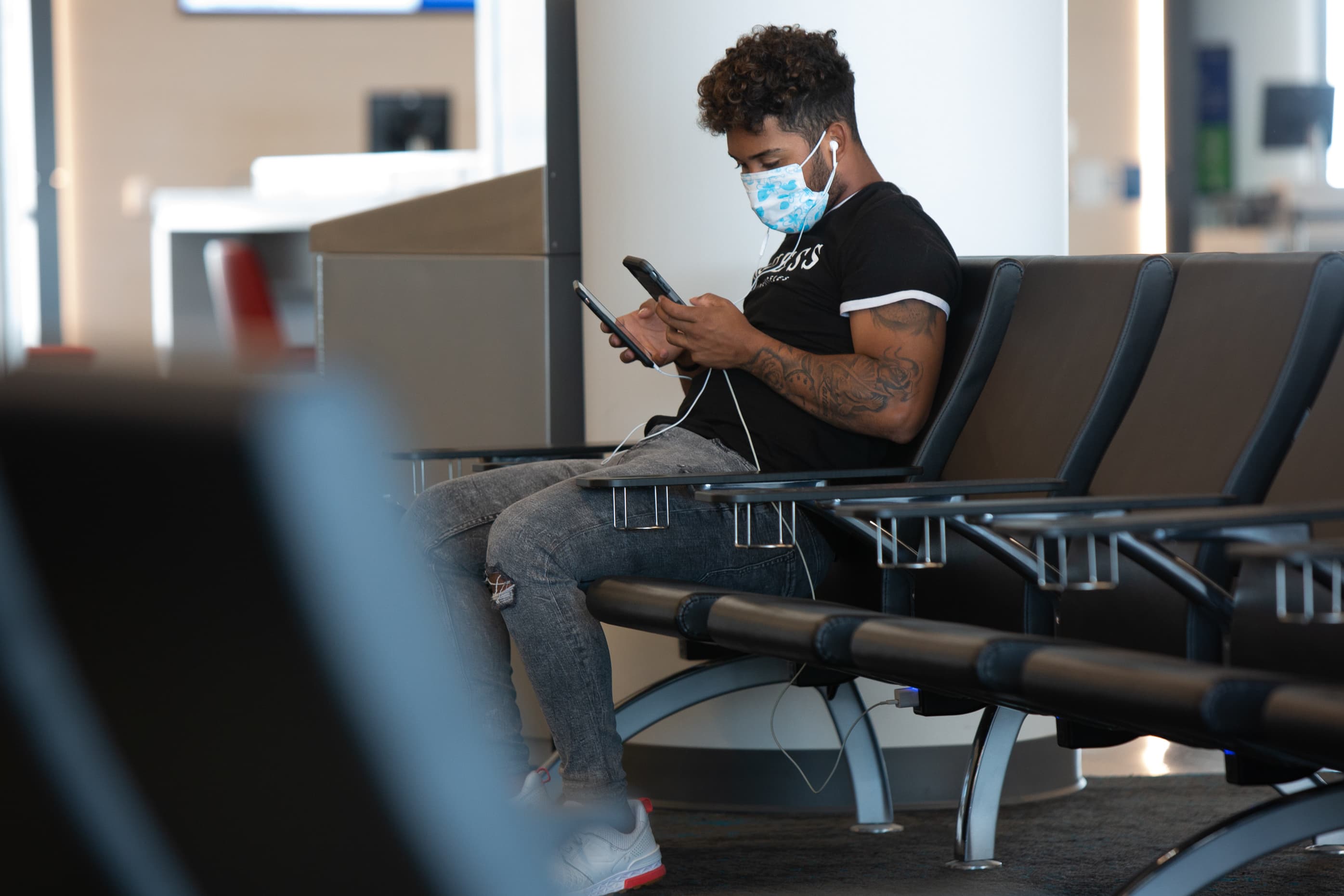
A passenger looks at his phone while wearing a protective face mask at the Phoenix International Airport on March 14, 2020 in Phoenix, Arizona. Passengers are wearing masks to avoid the spread of the coronavirus (COVID-19).
Carol Coelho
A team of data scientists, physicians and engineers at New York City’s Mount Sinai Health System has created an app that aims to track the spread of COVID-19 in the city, considered the epicenter of the nation’s outbreak.
The hospital’s patients and city residents will be able to monitor their symptoms through a web-based app, called STOP COVID NYC, Mount Sinai said in a press release. To sign up, the hospital is encouraging residents to text “COVID” to 64722. Users will need to complete an initial survey with questions about demographics, exposure and symptom history, followed by short daily surveys about their symptoms through text messages sent to their phones.
The data could alert health care providers about growing clusters of cases in the specific communities in the city, which would help them better allocate resources throughout the five boroughs, the hospital said. The coronavirus has infected more than 76,000 people in New York, far more than any other state in the U.S.
“To do this well, we need our whole city to help, not just those in hospitals or with access to health care. Everyone is included, and everyone can help. Capturing citywide coronavirus data from residents before, during, and after they become ill could help to reduce the pressure on medical resources and contribute to slowing the spread,” said Laura Huckins, and assistant professor at the Icahn School of Medicine at Mount Sinai, in a press release.
The Mount Sinai Health System is New York City’s largest academic medical system, encompassing eight hospitals, a medical school and a vast network of ambulatory practices throughout the greater New York region.
This is not the first time an app has been developed to help fight the spread of the coronavirus pandemic.
In February, China launched an app that tracks people and alerts them if they have been in “close contact with someone infected” with the new coronavirus. In Singapore, the government rolled out an app called TraceTogether that uses Bluetooth signals between cellphones to see if potential carriers of the coronavirus have been in close contact with other people.
The Massachusetts Institute of Technology also developed an app called “Private Kit: Safe Paths.” The idea is that users can update information about themselves on the app and then declare if they have the coronavirus or not.
However, apps like MIT’s and Mount Sinai will require widespread use to be effective.
“Most data used to guide clinical decisions for COVID-19 have been generated in China, but with New York City among the cities with the largest number of cases—a number that continues to grow—we see a critical and urgent need to understand more about the clinical course of the disease,” said Girish Nadkarni, an assistant professor at the Icahn School at Mount Sinai, in a press release.



